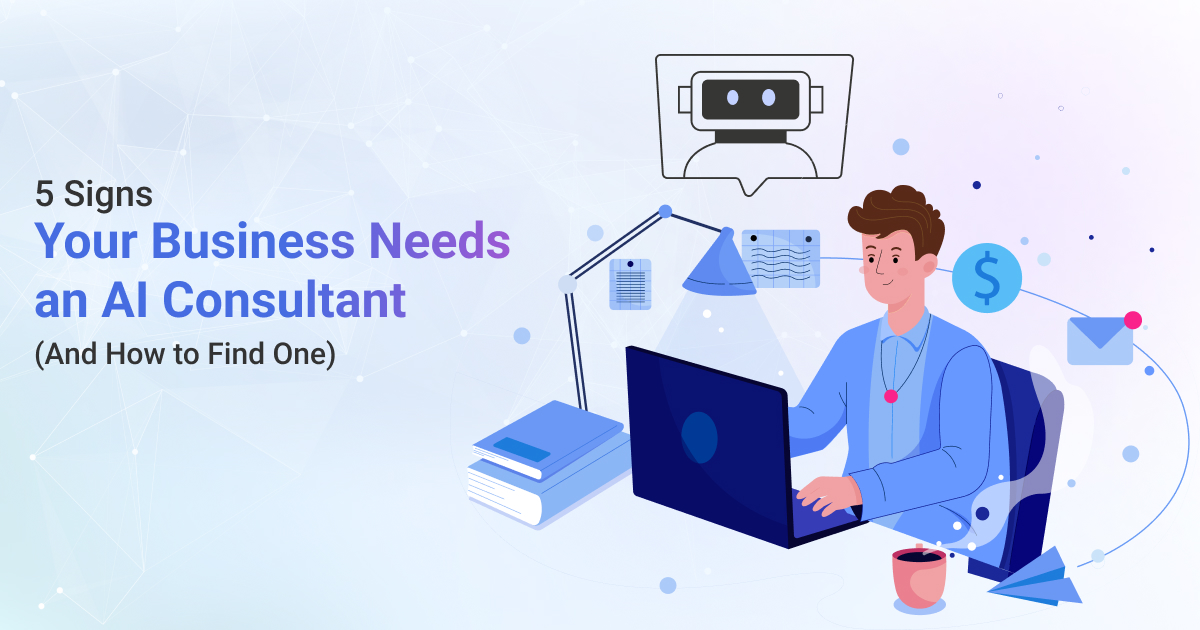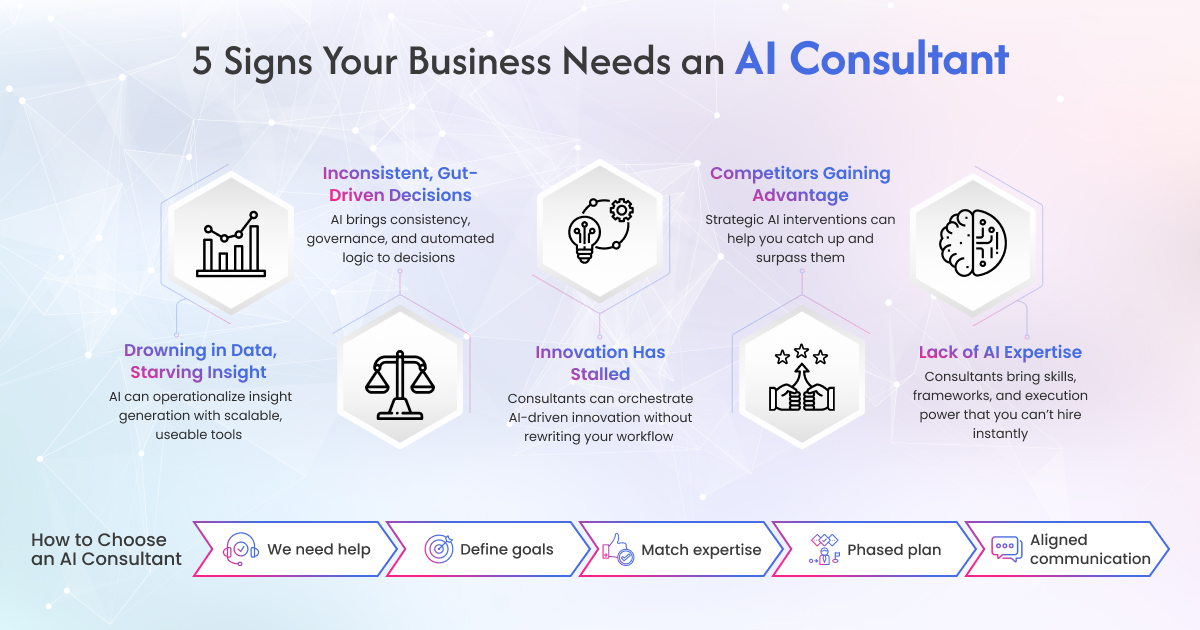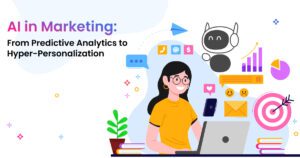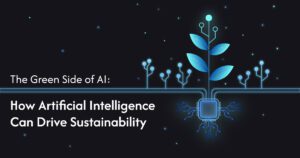5 Signs Your Business Needs an AI Consultant (And How to Find One)


Imagine feeling overwhelmed by data dumps, wary of falling behind competitors, and spending hours on repetitive tasks—while knowing AI could transform your business. It’s not about jumping on the AI bandwagon; it’s about recognizing when you’re stuck in the mud and ready for a lift.
You likely have heaps of data—customer behaviors, sales figures, operational logs but it’s scattered, inconsistent, and barely useful. When you feel stuck analyzing dashboards or manually piecing insights together, it’s a glaring sign.
AI consultants can help you restructure your analytics approach: building conversational data tools, intelligent dashboards, or custom insight-generation pipelines that your team can actually use.
You’ve noticed a pattern: two teams, two strategies, and wildly different outcomes. When subjectivity trumps data, inconsistencies take hold. An AI consultant can help unify processes with intelligent automation, reducing friction and bias in how decisions are made.
If proposing small improvements feels like pushing a boulder uphill, innovation has stalled. AI can reignite momentum—whether through smarter product features, predictive maintenance, or workflow automation. Consultants experienced in transformation can guide experimentation without disrupting your core operations.
You might feel like you’re running in place while competitors leverage AI to offer hyper-personalized experiences, faster support, or smarter products. If you’re losing ground despite your best efforts, a consultant focused on competitive AI strategies might be exactly what you need.
Even if you’re ready for AI, building models, choosing tools, and deploying at scale demands deep expertise data scientists, ML engineers, MLOps, governance specialists. That’s often a stretch for most organizations. AI consultants fill that gap immediately, bringing domain knowledge and infrastructure-ready strategy.
| Sign | Why It Signals the Need for an AI Consultant |
|---|---|
| Drowning in Data, Starving Insight | AI can operationalize insight generation with scalable, useable tools |
| Inconsistent, Gut-Driven Decisions | AI brings consistency, governance, and automated logic to decisions |
| Innovation Has Stalled | Consultants can orchestrate AI-driven innovation without rewriting your workflow |
| Competitors Gaining Advantage | Strategic AI interventions can help you catch up and surpass them |
| Lack of AI Expertise | Consultants bring skills, frameworks, and execution power that you can’t hire instantly |
When it’s clear you need help, here’s how to choose wisely and build trust and value, not just hype.
The best consultants start with your goals, not specific tools or flashy trends. They’ll ask: What are you trying to achieve? What are your success metrics?
A consultant should both understand your industry and navigate AI methodologies—balancing what’s possible with what’s sensible.
If a consultant immediately pushes pre-packaged tools, proceed with caution. The right partner evaluates your needs before recommending.
Choose consultants who propose phased deployment, success metrics, and iterative rollouts—not one-and-done high-cost plans.
An effective AI consultant explains the project clearly, teaches your team, and documents everything—so you’re not dependent forever.

Realizing you need an AI consultant doesn’t mean media hype it’s understanding your gaps, where AI can transform, and how to get help that truly fits. With clarity, evaluation of expertise, and a phased plan, your consultant becomes a strategic partner not a pricey experiment.


